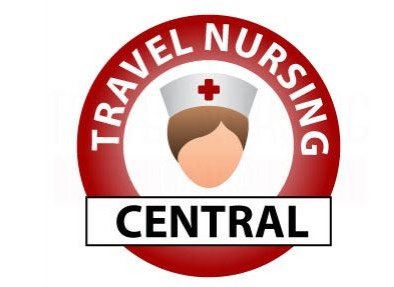You just got a call back from your recruiter with the news. You have a phone interview for the travel nursing job of your dreams! You’ve got the experience and the job is in your dream location. You’re practically a shoe-in for the position. Or are you?

Interviews can be stressful, but with these tips, you can stay confident and land your dream job!
It’s easy to forget to prepare for your phone interview. After all, the hospital managers liked you enough on paper, so what’s the big deal? The fact remains that the interview is a critical phase of the job-seeking process, so you’ve got to do your homework. The phone interview not only helps the unit manager decide if you will be a good fit for their unit, but it’s also a wonderful tool to help you decide if this job will match your experience and goals as a traveler.
So, Travel Nursing Central has compiled a list of 5 interview tips for the travel nurse to help you prepare:
- Dress to Impress: Even though the unit manager won’t see what you’re wearing, it’s still a good idea to dress up for the phone interview. Why? People tend to act more professional when they wear formal clothes. Obviously, you still want to be comfortable, but remember to dress for success. And remember to smile! People can tell when you’re smiling over the phone.
- Research the Facility and Review Common Interview Questions: You can set yourself apart from the competition if you research the facility a little prior to the interview. Take a look at the hospital or healthcare facility’s website to see what they’re all about. You’ll also want to prepare your responses to common interview questions in advance. You’ll feel more confident going into the interview. So, if you’re asked “what do you know about our unit/facility?” you can answer without missing a beat.
- Stay Positive and Focus on Your Strengths: At some point in the interview, you might be asked about your experience in an area that you are unfamiliar with. Instead of saying, “I don’t have experience with that,” you should say, “I haven’t seen much of that yet, but I am willing to learn and help out wherever you need me.” Unit managers are always looking for go-getters, positive influences, and team players.
- Ask Insightful Questions: This is your chance to find out if the facility is a good fit for you. So, remember to ask questions that are important to you. You’ll want to know the size of the unit, the traveler to patient ratio, uniform requirements, and the hospital floating policy, just to name a few.
- Thank the Interviewer and Follow Up with Your Recruiter: It’s just good manners to thank the interviewer for his or her time. Also, sometimes, a unit manager might ask you at the end of the interview if you’ll accept the job. If you are unsure, the end of the interview is also a good time to let them know you will have an answer for them within 24 to 48 hours. After the interview, don’t forget to follow up with your recruiter. This shows that you’re still interested in the position and are persistent. If an offer is not made, you can also find out from your recruiter why so you’ll know for the next position.
With these 5 tips, you’ll be sure to ace your travel nurse interview. Good luck!
For all those veteran travel nurses out there, do you have any other interview tips? In your personal experience, what worked, and what didn’t?


